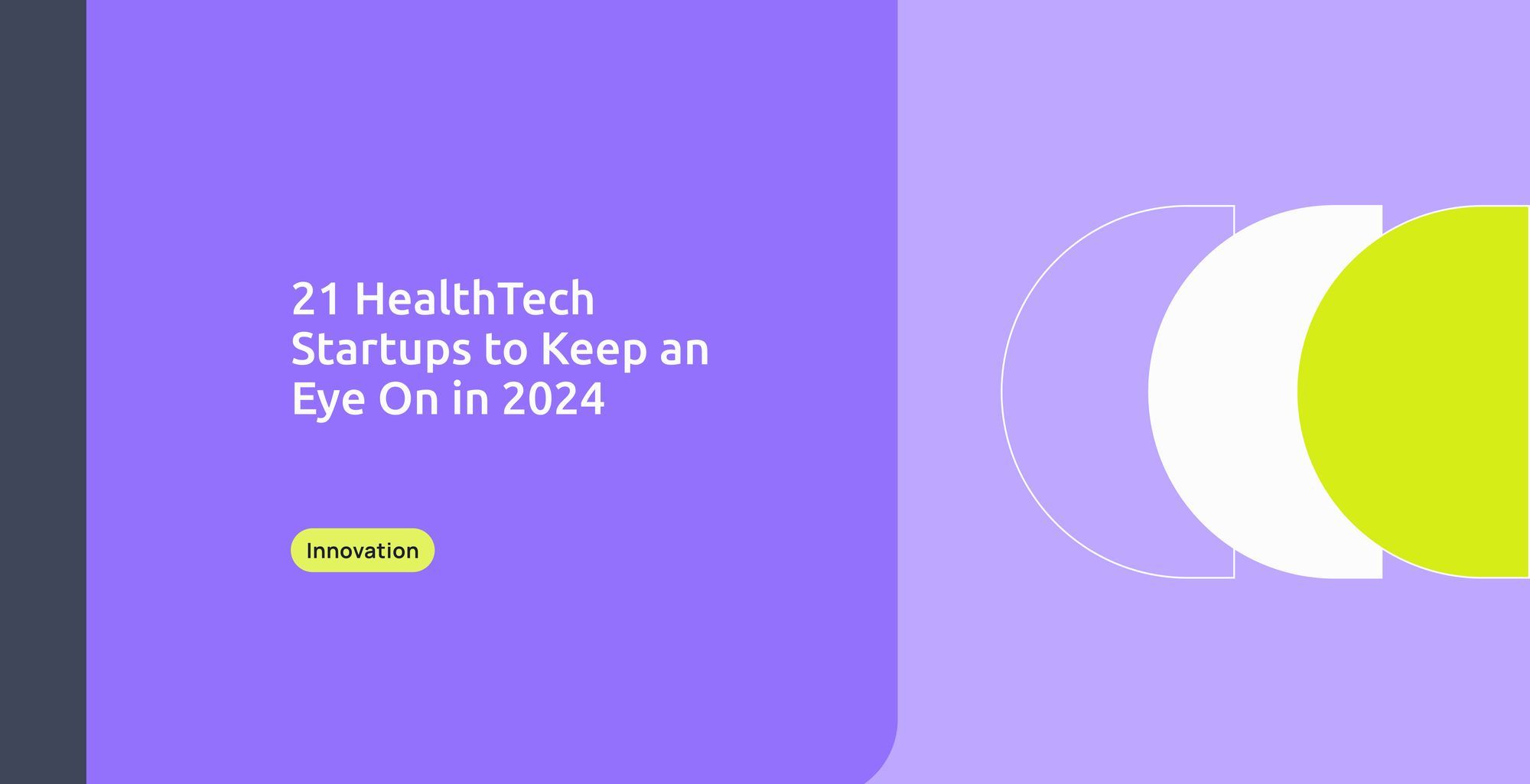Digital Health Startups have been on the rise for over 10 years now, with them experiencing true growth after the COVID-19 pandemic. The Health Tech market has been on the rise, presenting various opportunities for businesses worldwide!
Take AI in healthcare, for example. We have only recently started to understand and explore Artificial Intelligence's potential to improve people's quality of life, and I have the numbers to prove it.
According to Acumen Research & Consulting, the global AI in Healthcare Market reached $11.2 billion in 2022, and is projected to rise to about $427.5 billion by 2032. That's a clear testimony to how much we trust AI will aid health systems and healthcare professionals.
Yet, artificial intelligence is not the only road companies are taking to innovate in the field. In this blog post, we'll dive into 21 health tech startups that are building disruptive digital health products.
(The ranking is in no particular order, but I will be grouping the startups according to certain industries)
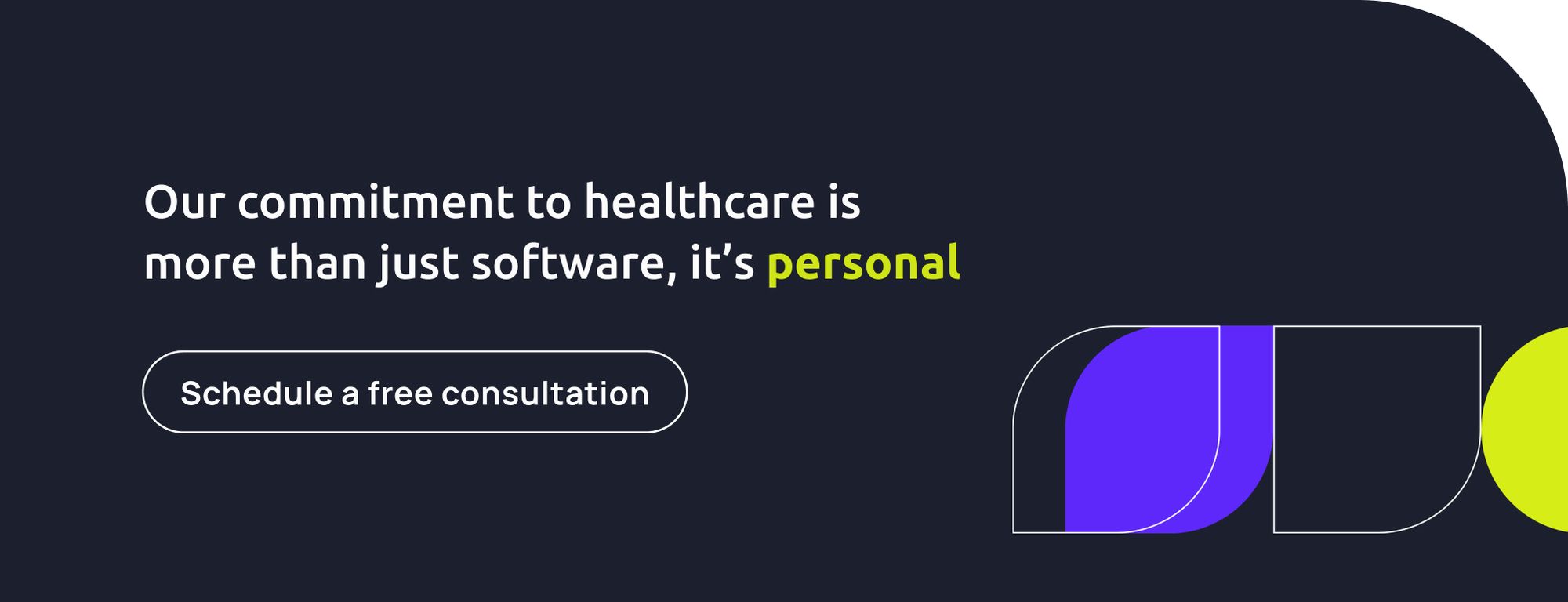
Mental Health
Countless research has shown mental health-related problems are on the rise. 22.8% of US adults experienced mental illness in 2021 —that's 57.8 million people. Thankfully, awareness around these issues is growing as well, and various software developments in healthcare are destined to address them.
Let's take a look at what I believe are some of the most innovative digital startups tackling mental health issues:
1. Wondermed
Wondermed specializes in efficient and safe at-home ketamine treatments for anxiety and depression. The startup offers its services to patients, prescribers, and therapists.
Patients who sign up are connected to a Wondermed clinician to personalize their treatment, then shipped the necessary resources and supported digitally throughout the process. +92% of their reporting patients have shown a positive change in their well-being since beginning treatment. For their part, clinicians and therapists can prescribe Wondermed treatments to their patients. Over 11,000 ketamine treatment sessions have already been prescribed!
What I find most interesting about Wondermed is their scientific approach to the matter. They believe psychedelic medicine holds an amazing potential to transform the way we see ourselves and the way we see the world. Although ketamine treatments have been practiced for +40 years, we still haven't seen its true potential, and this startup is sure to help us explore it!
At Light-it, we've discussed Wondermed's strategy with Jose Muñoz Aycart - founder and managing director - at DHI's Mental Health: Psychiatry Evolution, Trends and Disruption in the Field roundtable, and let me tell you, his enthusiasm and determinism make me optimistic for the solution!
2. FOLX
FOLX Health is a telehealth startup that provides services for the LGBTQIA+ community. They offer treatment directly to patients and also provide their services for employers who want to support people in their workplace. What truly stuck with me was the fact that 78% of FOLX's patients say they could not find inclusive care prior to their services.
FOLX, which in 2022 closed a $30 million round of funding, connects patients with specialized clinicians who can help with a number of issues relating to gender-affirmation, sexual and reproductive health, primary and preventive care, mental health, and fertility. The startup also offers training and resources for companies' employees.
Their Care Team is available all days of the week, and they count with a referral network of in-person clinicians, as well as non-clinical referrals such as legal, adoption, and surrogacy services, LGBTQIA+ organizations, hair removal, voice therapy, and more.
Every community must have access to safe and expert healthcare treatments and resources, and FOLX is doing an incredible job at helping LGBTQIA+ people get theirs.
3. Mavida Health
I hope you all know about the Gender Gap in healthcare. If you don't, let me summarize it by saying 51% of the world population are women, yet only 4% of medical research is focused on them. Women were led to believe they go through the same diseases as men, and they react to and need the same treatments as them. This could not be farther from the truth.
Dr. Sarah Oreck, reproductive psychiatrist, and Emma Sugerman, digital health leader, created Mavida, a therapy platform for perinatal mental health care.
Mavida offers their patients individualized therapy, medication management, and clinical care, as well as resources and community support for those trying to conceive, pregnant, experiencing loss, seeking adoption or surrogacy, or in the postpartum period.
This startup's approach to care is evidence-based and specially tailored to each mom by their team of trained doctors and therapists.
4. Osmind
This startup was developed to empower neuropsychiatric clinicians and researchers to innovate in mental health treatments.
Osmind offers a simple, customizable and flexible EMR, as well as a streamlined EHR. They're also committed to supporting the development of new, effective treatments for moderate to severe mental health conditions through rigorous research, advocacy, and modern technology.
The total amount of funding for Osmind has reached $57 million since its founding in 2020. This is clear proof of the industry's confidence in this platform for breakthrough mental health treatment and research.
Work Optimization
One of the healthcare industry's most recent pressing issues is ineffective work processes. Physicians are burned out. Instead of spending time with their patients, these healthcare professionals are spending time on administrative tasks and requirements that take up much-needed time.
To make matters worse, at a recent ViVE 2024 panel, Aneesh Chopra (former US CT) reported healthcare consumption is expected to increase by 40 to 50% in the next 10 years, alongside a 15-17% decrease in the workforce. These numbers need to improve.
Here are some of the companies who are building medical software to address this challenge:
5. Nabla Copilot
Nabla is an AI assistant practitioners can use to automatically generate clinical notes from patient encounters, update their medical records, and overall improve patient care in a HIPAA and GDPR-compliant way.
Clinicians can save up to 2 hours per day on documentation, and about 90% of those who used Nabla experienced a burnout decrease. Happy physicians, happy life!
6. Formsort
When used in the healthcare industry, this HIPAA-compliant form builder can design customizable forms throughout the patient experience, from patient intake and surveys to monthly check-ins. Formsort also streamlines the patient assessment process by eliminating back-and-forth interactions with compliant routing forms.
Forms can overall improve healthcare experiences for both physicians and patients, and that's why at Light-it, we've partnered with Formsort for various projects!
7. Vori Health
Did you know over 50% of lumbar spine surgeries in the U.S. are unnecessary? Seems unbelievable, doesn't it?
Vori Health is fighting this issue with its digital platform, which simplifies musculoskeletal (MSK) care by preventing unnecessary procedures and leading to faster recoveries. Vori allows patients to attend virtual and in-person appointments after getting a holistic diagnosis, cutting costs and simplifying patient journeys.
Vori saves up to 3 times more than other MSK solutions, and it has helped reduce about 78% surgical referral rate for their patients. The healthcare industry must focus its time and resources on imperative procedures, that's why I believe this startup's work is a game-changer.
8. Puppeteer
Puppeteer offers a platform that enables any healthcare company to construct AI agents with unparalleled human-like capabilities.
Its aim is to revolutionize healthcare with Conversational AI by creating LLM-based applications.
Puppeteer allows clients to provide their own documentation to feed their long-term memory agent, as well as uses advanced prompting techniques, like tree-of-thought and few-shot learning, to guide its behavior for desired outcomes without requiring model weight updates. The startup also offers user metrics and monitoring, all in a HIPAA-compliant way, of course.
I'm especially fond of Puppeteer because it's a Light-it spinoff! Knowing the team personally, I'm sure their solutions are unmatched.
9. Metriport
Metriport helps digital health companies access and manage patient health and medical data through an open-source and universal API.
They work with data from the largest clinical data networks in the US, building and managing their integrations to ensure health tech companies' access to patient's clinical history is swift and effective through their Medical API. Metriport also offers a healthcare provider dashboard to streamline clinicians' patient record retrieval process.
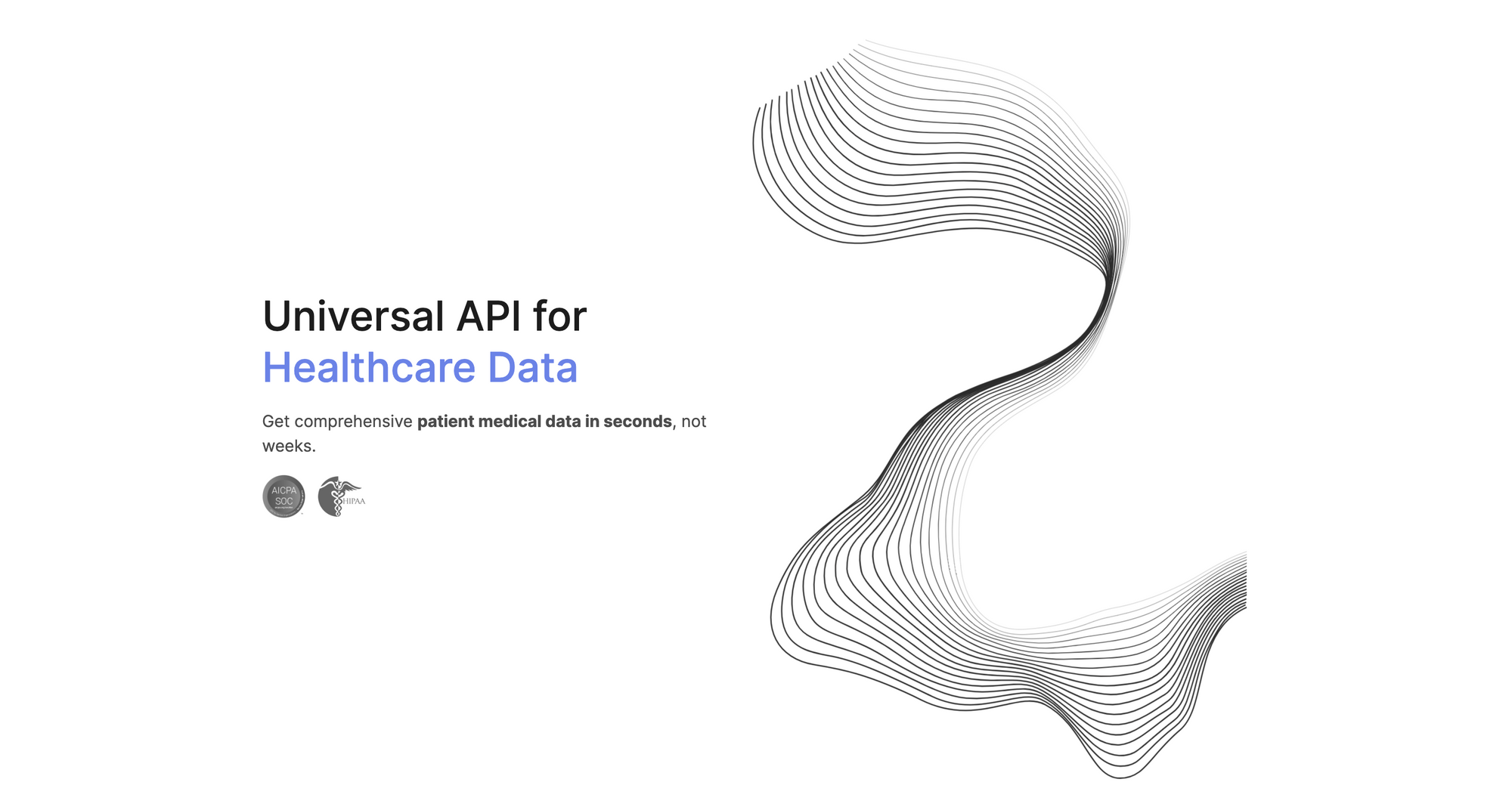
Metriport delivers fully integrated patient clinical data at the point of care, guaranteeing clinical accuracy and completeness of medical information to clinicians through a single integration.
10. Zocdoc
Zocdoc matches over 6 million patients and doctors each month in a quick and personalized way through their app.
For patients, this means booking and managing healthcare sessions in a swift and efficient way. For doctors, this means reaching new patients, filling last-minute schedule openings, and focusing on treating the right people.
For health systems, Zocdoc's patented HIPAA-compliant integration technology will automatically check practice calendars, display provider availability, and update EHRs when a patient books through the platform.
Neurology
There's been numerous breakthroughs in neurology throughout the years, from the use of MRIs, EEGs, and PET scans, for example, to the use of AI in creating digital replicas of the brain.
Neurology is one of the most complex areas to innovate in, so kudos to these startups for paving their way:
11. Eight Sleep
Eight Sleep works to optimize sleep by leveraging thermoregulation, data, and technology to design products that improve people's sleep habits.
Their products have increased deep sleep by 34%, sleep quality by 32%, and recovery by 19%. With their Autopilot, the bed temperature is automatically adjusted according to personal preferences and sleep stage. Moreover, Eight Sleep offers to wake people up by using vibrations and thermal alarms.
Overall, I believe this startup will actually improve people's sleep quality, and consequently, people's quality of life. There’s no wonder they’ve been able to raise a total funding of $173M over 8 rounds, and have reached a $500 M valuation.
12. Novoic
This startup aims to achieve earlier detection of neurological diseases through their AI-driven technology, which can detect variances in speech patterns that surface in individuals who experience Parkinson’s, Alzheimer’s, and other diseases years later.
Novoic developed a clinically-informed AI speech test, pre-trained on large non-clinical datasets, which has reached different breakthroughs, including predicting MCI, preclinical AD and amyloid PET positivity.
Novoic algorithms are already being used by +50 institutions across the US, including major organizations and healthcare systems such as Mayo Clinic, Johns Hopkins University, Harvard Medical School, Mount Siani, Yale, and Standford University.
AI for the win, am I right?
Care Support
Care Support digital solutions aim to help patients, caregivers, and providers manage medical conditions by improving care accessibility, monitoring, and delivery, to help patients improve the way they self-manage the disease.
These solutions don’t necessarily improve patients’ health outcomes, but they do help with recommendations, useful resources and reminders. Here are two startups that I believe are changing the game for Care Support:
13. Malama
Malama enables HIPAA-compliant remote monitoring of diabetes in pregnancy, a condition that affects nearly 1 in 5 women.
Their tracking app allows women with gestational diabetes to log their meals, their glucose levels, and to access educational content to help them through their journey. The app also syncs with various glucometers, and the tracked information can be easily shared with the patient's doctors. 80% of Malama's users have achieved glycemic control in just 2 weeks!
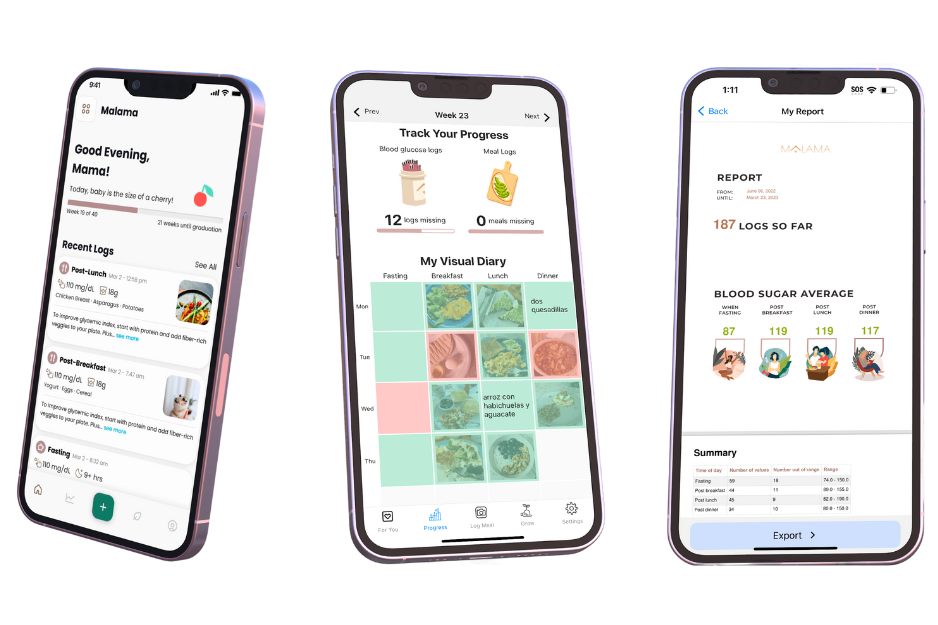
The startup also offers its services to healthcare providers, allowing for Remote Patient Monitoring by integrating their platform within existing clinical workflows.
14. Eo Care
eo Care ’s mission is to end the epidemic of unwise cannabis use and educate all who might benefit. They provide affordable, data-driven, and clinician-led care as well as innovative, purpose-designed CBD and THC products.
To further eo Care’s purpose, the Light-it team collaborated with eo Care to develop an AI agent powered by Puppeteers’ LLMs technology, that acts as a knowledgeable advisor for leads and clients regarding the usage of their products.
Cannabis can reduce nausea, stimulate appetite, manage pain and anxiety, improve sleep and simplify complex symptom management regimens.
Innovating in such a prejudiced industry is impressive, so kudos to eo Care for breaking through!
Digital Diagnostics
Digital Diagnostics are diagnostic services enabled by digital technologies that aid in measuring the presence, grade, status, response, progression, and recurrence of different diseases and conditions.
Digital Diagnostics can make sensitive and specific diagnoses, and as such, they need higher levels of regulatory requirements and clinical validation. Here’s some of the health tech startups working in the industry:
15. Covera Health
Covera Health analyzes datasets using AI-powered systems to improve and personalize patient care, as well as reduce unnecessary healthcare spending, specifically in the Radiology industry.
This startup began with a study conducted by the Hospital for Special Surgery (HSS), which showed a woman received 5 different diagnoses from 10 imaging centers, which all conducted the same MRI exam. These various diagnoses led to significantly different treatments.
Covera, which recently announced $50 Million in fresh funding as it attempts to redefine its field, supports radiologists by improving patient care and enhancing peer learning, as well as ensures each patient receives the right diagnosis at the start of their care, which dramatically improves the likelihood of a positive outcome.
16. InVision Medical Technology
This startup uses AI to help streamline the interpretation of ultrasounds and identify diseases that may have been missed by human readers. In the US only, 32 million ultrasound examinations are performed each year, with each exam needing over 1 hour of physician's and technician's time.
InVision's software tools improve the performance of echocardiography, and they are focused on serving patients and providers through the process of development and commercialization of AI diagnostics.
17. Paige
Paige offers a full-scale, AI-enabled, web-based solution that increases efficiency in cancer diagnosis. They created the largest AI models for detecting and quantifying cancer in tissue biopsies, through exclusive access to the world’s largest digital image library of cancer cases and associated genomic data from diverse sources. The startup also works with clinicians!
Paige has shown a 70% reduction in cancer detection errors and a 65.5% reduction in time to diagnosis. These outstanding outcomes have positioned the company as a global leader in AI-based digital diagnostics, enabling the total funding of $239M to date.
18. Tempus
This startup was born as a solution that combines the power of technology and AI in cancer care. Tempus is the first version of a platform capable of ingesting real-time healthcare data in an effort to personalize diagnostics.
When treating cancer patients, their broad panel genomic tests are based on next-generation sequencing (NGS) technology, which allows the identification of genomic alterations within tumors.
The platform was built for oncology, but has since been expanded to neuropsychiatry, cardiology, infectious disease, and radiology!
Wearables and medical devices
19. Hinge Health
Hinge is a healthcare company specializing in the musculoskeletal space. They deliver at-home physical therapy services through wearable body tracking devices and virtual communication with physical therapists and other healthcare professionals.
This startup's digital clinic has reduced 68% of participants’ MSK pain on in average, and about 58% of their depression and anxiety levels. Impressive, right?
20. Makani Science
This startup is a medical device company that has created the world's first wireless patch that can accurately and continuously monitor breathing. Makani, works to solve a pressing issue: poorly monitored breathing.
Breathing monitors currently on the market have inaccuracies or delayed responses. Pulse Oximeters are only 6% accurate, and Capnographs have an accuracy rate of only 18%.
Makani's monitoring system counts with a unique sensor design that uses a proprietary, postage-sized, stretchable sensor for comfortable respiratory rate monitoring. Furthermore, its Bluetooth connectivity makes it easier to use than most wired devices.
Special Mention
21. Light-it
I couldn't help but include Light-it in the list because (and I may be just a tad biased) we truly are building the future of healthcare! Light-it helps digital health startups, clinics, and medtech companies ideate, design, and develop custom applications.
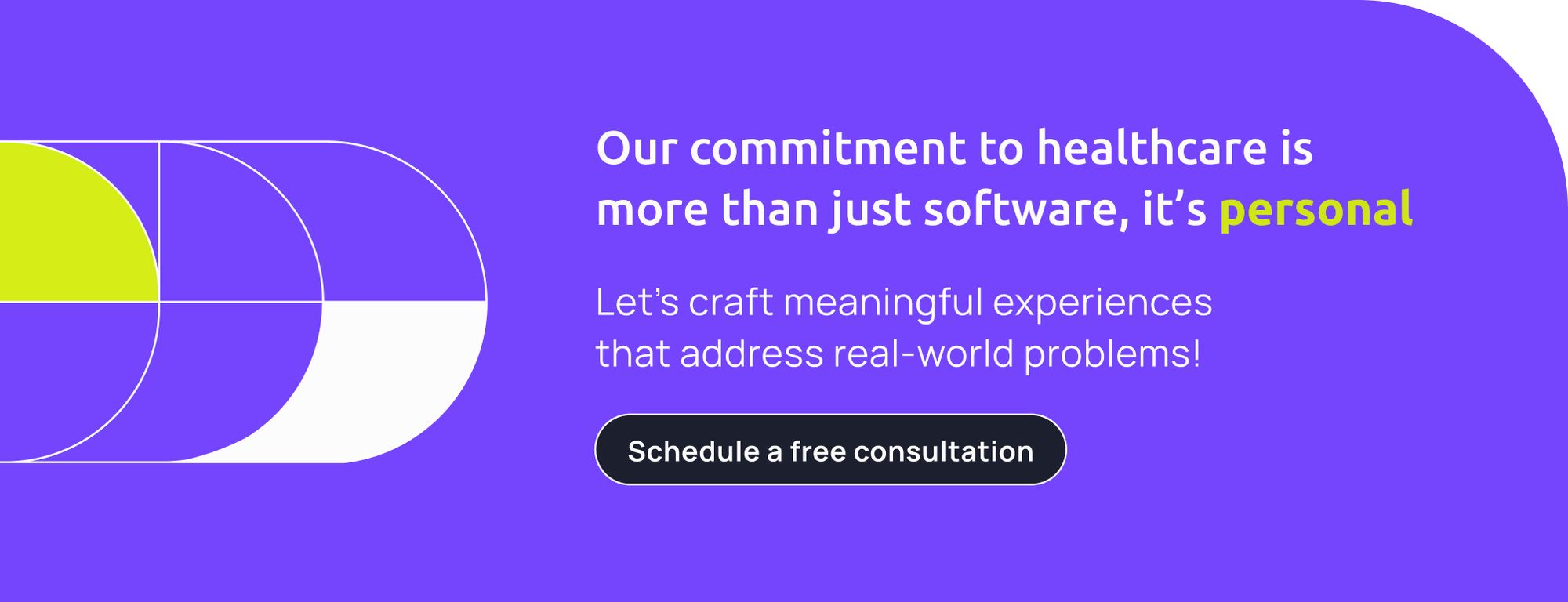
The Innovation Lab is our way of staying ahead of new technologies and anticipating client needs. This team is dedicated exclusively to researching, studying, documenting, and building Proof of Concepts (PoCs) for Light-it, with the objective of staying ahead of the curve, especially with AI.
Let me tell you, you won't find a better tech partner... ;)
Final Remarks
These are just some of the countless amazing digital health startups working to improve people's quality of life. Getting to know what other companies have been working on is a great way of identifying unmet demands in the industry and recognizing opportunities to keep improving patients' experiences.
And remember, this is not a race or a competition! At the end of the day, we're all working towards building the future of healthcare.

